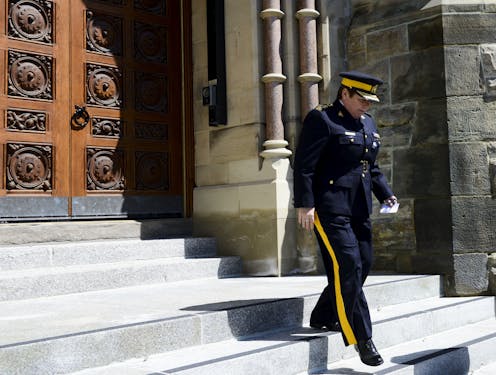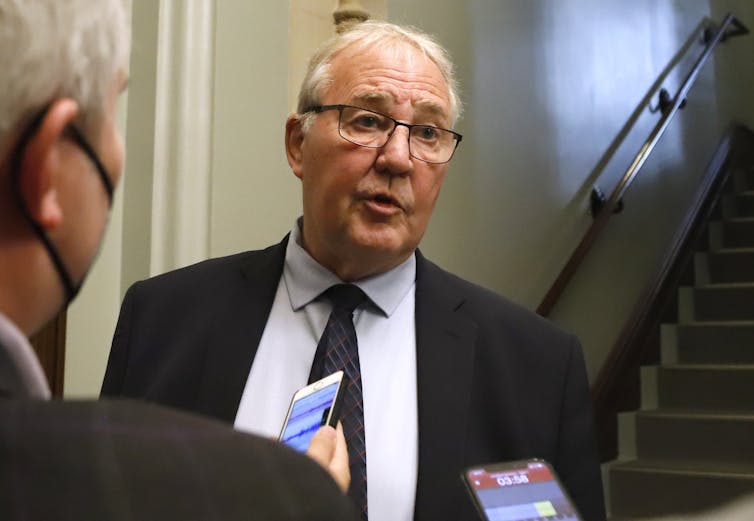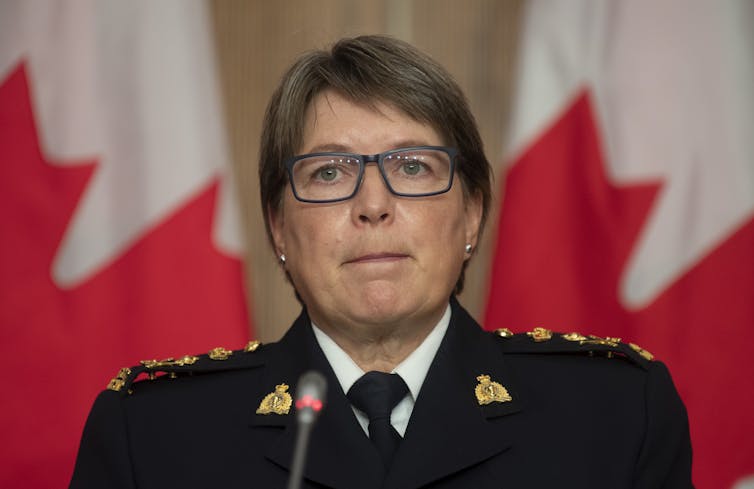
Shortly after the terrorist attacks on Sept. 11, 2001, I saw RCMP leadership both at its best and its worst. In British Columbia at the RCMP headquarters where I worked, the divisional commanding officer quickly lost patience with national headquarters and jumped into action.
In Ottawa, the RCMP headquarters was stalling over the wording of a news release drafted to urgently inform the public as to why a heavily armed RCMP shut down all access to Vancouver International Airport. Our commanding officer basically said the hell with it — the exact words I heard were “it would be unconscionable not to” quickly inform the public.
Recent allegations from RCMP Supt. Darren Campbell that the head of the RCMP interfered with real-time RCMP operations during the search for the suspect in the 2020 Nova Scotia mass shootings comes as no surprise to me.
The evidence of organizational misalignment follows a mountain of academic studies and the RCMP’s own national research — some of which I authored as director of research for the national change management project in 2009.
That experience, and my time as a civilian director of research and continuous improvement with the B.C. RCMP for 20 years, makes me wonder whether allegations of Ottawa’s political interference in the RCMP’s efforts to catch Nova Scotia’s mass shooter finally confirm it’s time for the RCMP to be divorced from national political masters.
An expected response
Now that the Mass Casualty Commission is looking into the 2020 attacks that resulted in the deaths of 22 people, there’s been a firestorm over allegations of political interference.
Notes were recently released from Campbell saying RCMP Commissioner Brenda Lucki berated senior commanders over withholding information about the guns used in the attack. His notes also reveal that Lucki suggested the information could be used to leverage the Liberal government’s gun-control agenda.
As expected, Emergency Preparedness Minister Bill Blair has denied interference. But the tragic events in Nova Scotia and subsequent response once again confirm that the national RCMP culture, structure and systems of organization are long overdue for restructuring so that it’s free from Ottawa’s political interference.

A mountain of evidence
The evidence that change is needed can be found in several mothballed studies and warnings that speak for themselves.
In 2007, the RCMP commissioned management researcher Linda Duxbury to write an independent report that examined the organization. In The RCMP Yesterday, Today and Tomorrow, Duxbury reported that “RCMP culture is not one that supports change… Words that describe the general culture include: paramilitary; hierarchical; Pollyannaish; respectful of the position rather than the person; overcommitted… one that shoots the messenger.”
That same year, the Task Force on Governance and Cultural Change in the RCMP made sweeping recommendations to change the culture and structure of the organization.
In the science of change management, it is commonly accepted that change evolves through a sense of urgency, purpose, a clear vision and compelling leadership. The task force created a sense of political urgency in Ottawa by saying:
“Organizational change and new approaches proved to be difficult to sustain and institutionalize in such a large, complex and traditionbound police organization. We heard more than once that the culture is one of fear and intimidation and that some who are in a position of command use their authority to intimidate others.”
That task force gave birth to the national change management project where I served as director of national research, surveying thousands of RCMP civilian employees and officers across Canada.
This work informed a major report which concluded that the RCMP was in an impossible position — it was a major police service “run like a junior ministry of the federal government.”

In 2019, I published a research paper on national leadership at the RCMP with the evidence from dozens of RCMP workplaces that show an irreconcilable clash of culture. I wrote:
“As Canada’s national police force the RCMP combines four levels of policing (international, federal, provincial/territorial and municipal) in one integrated model. This model’s complexity is further confounded by what are in essence two parallel cultures within the RCMP — the policing culture and the bureaucratic and political culture common to all large government departments.”
Today, those findings of a clash of culture still exist.
Police officers described to me an “Ottawa, political mindset” where daily life and death, on-the-ground operational needs of dedicated officers (in often remote parts of Canada) are far from the minds and political policy machines in the nation’s capital. The examples range from the absurd (delays in getting proper uniforms) to the disturbing (taking too long to issue life-protecting carbines).
The RCMP structure currently results in a condition that I call systemsclerosis — a hardening of the arteries of communication, accountability and responsibility. As with arteriosclerosis that calcifies the heart until death occurs, systemsclerosis presents itself until organizational death inevitably occurs.
Eli Sopow does not work for, consult, own shares in or receive funding from any company or organization that would benefit from this article, and has disclosed no relevant affiliations beyond their academic appointment.
This article was originally published on The Conversation. Read the original article.







